An acid test for global community
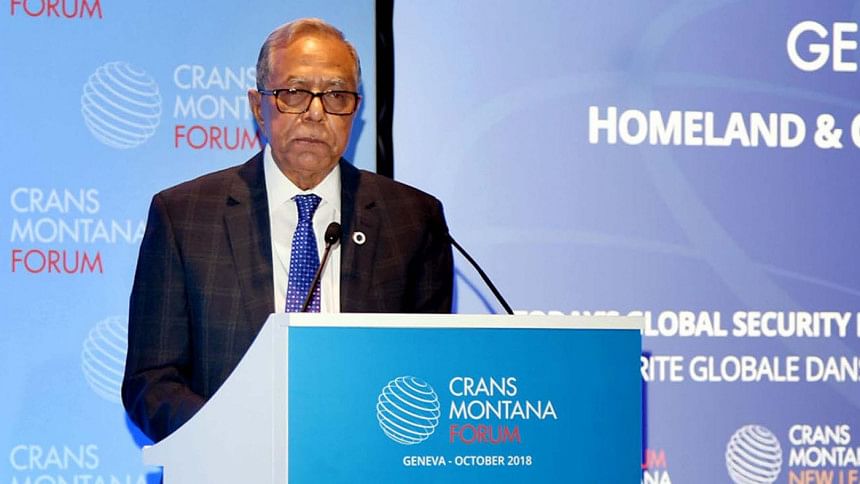
President Abdul Hamid yesterday called for mounting pressure on Myanmar from across the world to take back the forcibly displaced Rohingyas from Bangladesh.
He was addressing a global security summit on the sidelines of the World Investment Forum-2018 here.
"The case of the Rohingya Muslims in Myanmar may be considered as an acid test for the global community to collectively deal with an international problem and a test case for any future international cooperation on peace and security," Hamid said.
He urged the international community to arrive at a durable solution and stop the process of impunity by identifying the persons responsible for the acts of violence.
"We all are appalled by what we have seen in the UN reports about the horrifying atrocities committed against them [Rohingyas] which tantamount to genocide and crimes against humanity… and we are trying to do our best in our ability to provide food, shelter, clothing, healthcare, childcare and above all, the sense of security."
The president delivered his speech on "The hardening of international relations: A risk to peace and security" at the opening session of the 20th Homeland and Global Security Forum at Grand Hotel Kempinski in Geneva.
Hamid is now on a five-day official visit to Geneva to attend the World Investment Forum-2018.
Observing that the rise of terrorism and extremism along with proliferation of weapons of mass destruction and trans-national crimes were pushing the humanity to the edge, the president said local or regional conflicts abound in all parts of the world and some countries were seen taking different sides instead of putting pressure on the opposing sides.
He stressed the need for concerted efforts involving all countries to face new security threats like cyber attack and cope with the adverse impacts of climate change-induced disasters.
"Peace has now become more than absence of war and the traditional definition of security has changed forever. Now we also have powerful non-state actors to influence the international politics to make the matter worse.
"As the Fourth Industrial Revolution has presented us with an unparalleled prospect of development, at the same time the humanity is also faced with probably the greatest dangers and existential threats in all its known history," he said.
Noting that the world must feed more than 9 billion people by 2050, he said it was not prepared for that as malnutrition and hunger were still ruling many parts of the world.
"The rise of nationalist identity-based politics set by different countries along with lack of trust are directly impacting activities of different multilateral organisations and their peace-building efforts… absence of trust and lack of collaboration are on the rise," he said.
Armenian President Armen Sarkissian, Montenegro President Filip Vujanovic and Lesotho Prime Minister Thomas Motsoahae Thabane, among others, spoke on the occasion.
President Hamid exchanged greetings with the heads of the states and representatives of different countries.

 For all latest news, follow The Daily Star's Google News channel.
For all latest news, follow The Daily Star's Google News channel. 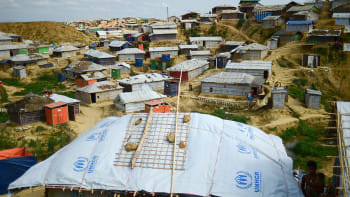


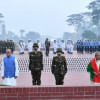

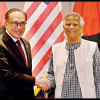
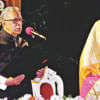


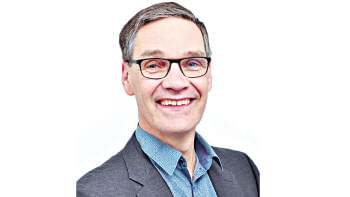
Comments